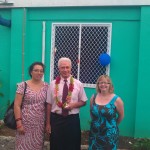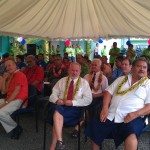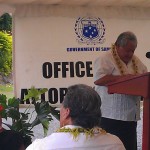Accepting applications as of September 1
Applications due November 30
The Center awards fellowships to support significant research and
writing about the Holocaust and welcomes proposals from scholars in
all relevant academic disciplines, including history, political
science, literature, Jewish studies, philosophy, religion, sociology,
anthropology, comparative genocide studies, law, and others.
Fellowships in residence are awarded to candidates working on their
dissertations (ABD), postdoctoral researchers, and senior scholars. A
principal focus of the program is to ensure the development of a new
generation of Holocaust scholars. To this end, scholars early in their
careers are especially encouraged to apply. Applicants must be
affiliated with an academic and/or research institution when applying
for a fellowship. Immediate post-docs and faculty between appointments
will also be considered. Continue reading



